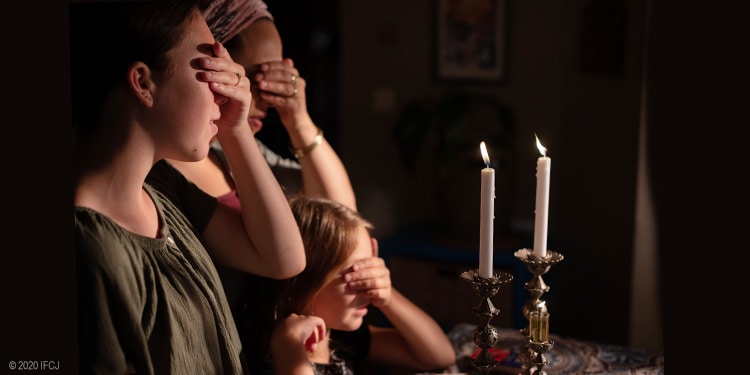Shabbat Beckons Us to Pause
Yael Eckstein | June 4, 2021

“For six days work is to be done, but the seventh day is a day of sabbath rest, holy to the LORD … for in six days the LORD made the heavens and the earth, and on the seventh day he rested and was refreshed.” — Exodus 31:15-17
During this month, I’m sharing with you weekly devotions based on my book, Generations to Generations: Passing on the Legacy of Faith to Our Children. These devotions are tied to the biblical observance of the Sabbath, Shabbat, and exploring the many lessons it has for us today.
Our children today are growing up in the most technologically advanced generation the world has ever witnessed. Unlike previous generations, who also enjoyed more technology than their parents did, our world is changing much faster, and the effects are far greater than before. Unsurprisingly, this has had a profound impact on every aspect of our lives, including the most important ones: family, friends, community, and our connection to God.
Parents work longer hours, and children have busier after-school schedules than just a decade ago. Statistics show that the average American family spends only 35-50 minutes talking to each other on weekdays and less than three hours in meaningful engagement on weekends. Day after day, week after week, year after year, our lives rush by, but we still don’t have significant time for what matters most.
In the Ten Commandments, the Fourth Commandment, sacred to both the Jewish and Christian faiths, directs us to observe a day of rest, the Sabbath. Jews observe the Sabbath from Friday at sundown until Saturday at sundown, while Christians observe it on Sunday. The Hebrew word for Sabbath is Shabbat, and while it is commonly translated as “rest,” a more accurate translation is “stop.”
Shabbat Beckons Us to Pause
We are directed to work for six days and then stop working on the seventh, just as God created the world in six days and then stopped creating on the seventh. Shabbat beckons us to pause, reflect, refresh, and redirect our lives in a way that is congruent with our values. The Hebrew word Shabbat is also closely related to the word shav, which means “return.” The Sabbath is a day to return to our priorities.
Shabbat has always been a source of strength and a conduit for clarity among the Jewish people. Beginning the Sabbath by lighting the Shabbat candles reflects this belief. The Jewish sages taught that gazing at these flames repairs our vision. In other words, all week long, we can lose perspective. Our vision can become distorted regarding our value and goals. However, the light of Shabbat reminds us of what really matters and invites us to focus exclusively on what is most important to us.
Your Turn:
Share the lessons from Shabbat with your family with our new Generation to Generation Workbook, filled with Bible stories, discussion questions, and hands-on activities, specifically for Christians. Download your complimentary copy today!
